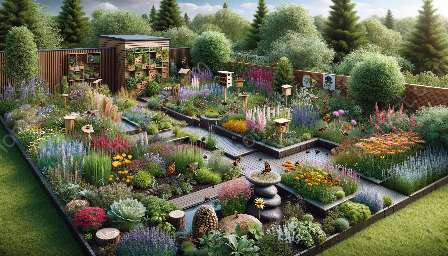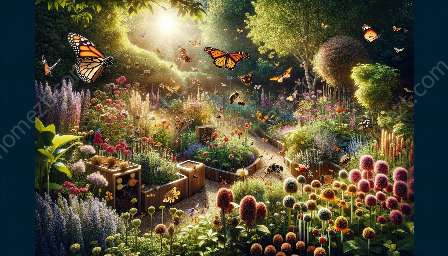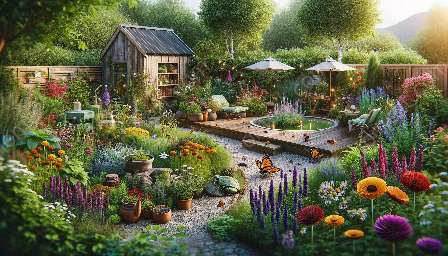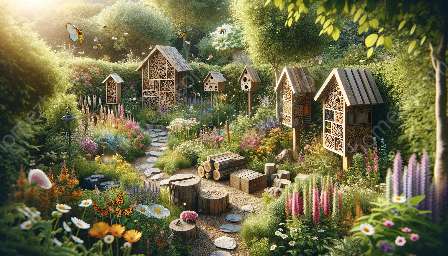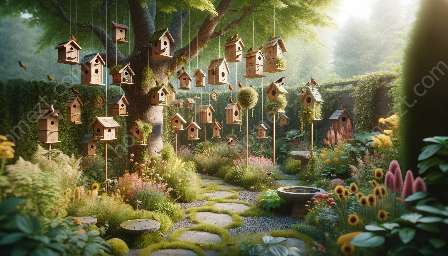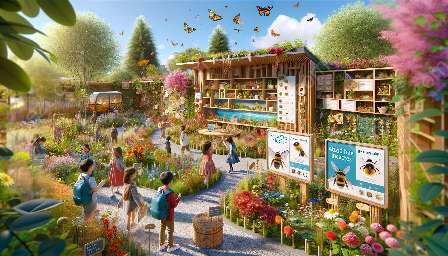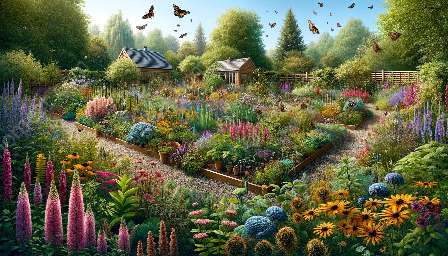Creating a wildlife-friendly garden is not just about providing food sources and shelter for animals; it's also about fostering a healthy ecosystem that includes beneficial insects. By attracting these helpful creatures, you can promote biodiversity and see significant improvements in the health and beauty of your garden. In this article, we'll explore the numerous benefits of attracting beneficial insects, and how it ties into wildlife gardening and overall garden ecosystem.
Enhancing Biodiversity
One of the key benefits of attracting beneficial insects to your garden is the enhancement of biodiversity. Beneficial insects play a crucial role in the natural balance of ecosystems by controlling pest populations, pollinating flowers, and aiding in nutrient recycling. By inviting a diverse range of beneficial insects, you can create a thriving and balanced environment where plants, insects, and other wildlife can coexist harmoniously.
Natural Pest Control
Many beneficial insects are voracious predators of garden pests. Ladybugs, lacewings, and predatory wasps, for example, feed on aphids, mites, and caterpillars, helping to keep pest populations in check without the need for harmful chemical pesticides. Integrating these natural pest controllers into your garden can reduce the reliance on synthetic chemicals, promoting a more sustainable and eco-friendly approach to pest management.
Pollination
Attracting beneficial insects such as bees, butterflies, and hoverflies to your garden can significantly enhance the pollination of flowers and crops. These insects play a vital role in the reproduction of many plant species, ensuring the production of fruits, seeds, and new plants. By supporting pollinating insects, you can increase the yield and quality of your garden's produce and contribute to the overall health of the ecosystem.
Soil Health and Nutrient Cycling
Some beneficial insects, such as earthworms and dung beetles, contribute to the improvement of soil health and nutrient cycling. The activities of these insects, including burrowing, feeding, and waste processing, help aerate the soil, increase its fertility, and promote the breakdown of organic matter. As a result, the soil becomes more conducive to plant growth, and the recycling of organic materials contributes to a sustainable and self-renewing garden ecosystem.
Attracting Beneficial Insects in Wildlife Gardening
When designing and maintaining a wildlife-friendly garden, the attraction of beneficial insects should be a priority. Incorporating a variety of native plants, wildflowers, and diverse habitats such as meadows, hedgerows, and brush piles can create an enticing environment for beneficial insects to thrive. By providing food sources, nesting sites, and shelter, you can encourage these insects to take up residence in your garden, contributing to the overall ecological balance and the success of your wildlife gardening endeavors.
Conclusion
Attracting beneficial insects to your garden comes with a myriad of advantages, from promoting biodiversity and natural pest control to enhancing pollination and soil health. By embracing wildlife gardening principles and creating a hospitable habitat for beneficial insects, you can establish a harmonious and resilient garden ecosystem that supports a diverse array of plants and wildlife. So, start incorporating strategies to attract beneficial insects, and witness your garden transform into a thriving and sustainable haven for both nature and human enjoyment.


